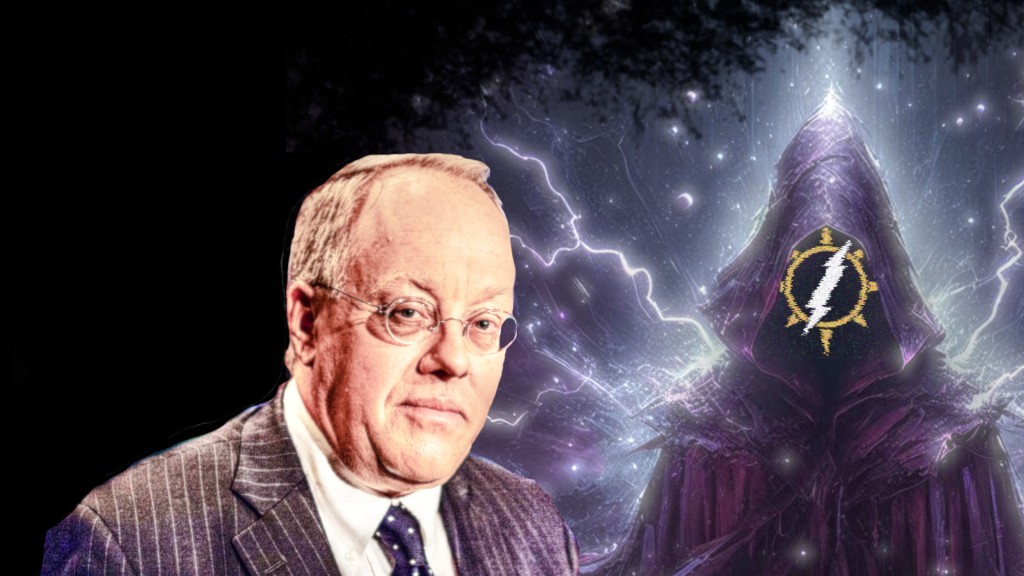From the folklore of England
Havelok and his unwilling bride recognized that they would not be safe near Godrich, and as Havelok had no home in Lincoln to which he could take the princess, he determined to go back to his faithful foster-father, Grim, and put the fair young bride under his loyal protection. Sorrowfully, with grief and shame in their hearts, Havelok and Goldborough made their way on foot to Grimsby, only to find the loyal Grim dead; but his five children were alive and in prosperity. When they saw Havelok and his wife they fell on their knees and saluted them with all respect and reverence. In their joy to see their king again, these worthy fisherfolk forgot their newly won wealth, and said: “Welcome, dear lord, and thy faith lady! What joy is ours to see thee again, for thy subjects are we, and thou canst do with us as thou wilt. All that we have is thine, and if thou wilt dwell with us we will serve thee and thy wife truly in all ways!” This greeting surprised Goldborough, who began to suspect some mystery, and she was greatly comforted when brothers and sisters busied themselves in lighting fires, cooking meals, and waiting on her hand and foot, as if she had been indeed a king’s wife. Havelok, however, said nothing to explain the mystery, and Goldborough that night lay awake bewailing her fate as a thrall’s bride, even though he was the fairest man in England.
As Goldborough lay sleepless and unhappy she became aware of a brilliant light shining around Havelok, and steaming from his mouth; and while she feared and wondered an angelic voice cried to her:
“Fair Princess, cease this grief and heavy moan!
For Havelok, thy newly wedded spouse,
In son and heir to famous kings: the sign
Thou findest in the cross of ruddy gold
That shineth on his shoulder. He shall be
Monarch and ruler of two mighty realms;
Denmark and England shall obey his rule,
And he shall sway them with a sure command.
This shalt thou see with thine own eyes, and be
Lady and Queen, with Havelok, o’er these lands.”
This angelic message so gladdened Goldborough that she kissed, for the first time, her unconscious husband, who started up from his sleep, saying, “Dear love, sleepest thou? I have had a wondrous dream. I thought I sat on a lofty hill, and saw all Denmark before me. As I stretched out my arms I embraced it all, and the people clung to my arms, and the castles fell at my feet; then I flew over the salt sea with the Danish people clinging to me, and I closed all fair England in my hand, and gave it to thee, dear love! Now what can this mean?”
Goldborough answered joyfully: “It means, dear heart, that thou shalt be King of Denmark and of England too: all these realms shall fall into thy power, and thou shalt be ruler in Denmark within one year. Now do thou follow my advice, and let us go to Denmark, taking with us Grim’s three sons, who will accompany thee for love and loyalty; and have no fear, for I know thou wilt succeed.”
The next morning Havelok went to church early, and prayed humbly and heartily for success in his enterprise and retribution on the false traitor Godard; then, laying his offering on the altar before the Cross, he went away glad in heart. Grim’s three sons, Robert the Red, William Wendut, and Hugh the Raven, joyfully consented to go with Havelok to Denmark, to attack with all their power the false Jarl Godard and to win the kingdom for the rightful heir. Their wives and families stayed in England, but Goldborough would not leave her husband, and after a short voyage the party landed safely on the shores of Denmark, in the lands of Jarl Ubbe, an old friend of King Birkabeyn, who lived far from the court now that a usurper held sway in Denmark.
Havelok dared not reveal himself and his errand until he knew more of the state of parties in the country, and he therefore only begged permission to live and trade there, giving Ubbe, as a token of good-will and a tribute to his power, a valuable ring, which the Jarl prized greatly. Ubbe, gazing at the so-called merchant’s great stature and beauty, lamented that he was not of noble birth, and planned to persuade him to take up the profession of arms. At first, however, he simply granted Havelok permission to trade, and invited him and Goldborough to a feast, promising them safety and honour under his protection. Havelok dreaded lest his wife’s beauty might place them in jeopardy, but he dared not refuse the invitation, which was pointedly given to both; accordingly, when they went to Ubbe’s hall, Goldborough was escorted by Robert the Red and William Wednut.
Ubbe received them with all honour, and all men marvelled at Goldborough’s beauty, and Ubbe’s wife loved Goldborough at first sight as her husband did Havelok, so that the feast passed off with all joy and mirth, and none dared raise a hand or lift his voice against the wandering merchant whom Ubbe so strangely favoured. But Ubbe knew that when once Havelok and his wife were away from his protection there would be little safety for them, since the rough Danish nobles would think nothing of stealing a trader’s fair wife, and many a man had cast longing eyes on Goldborough’s loveliness. Therefore when the feast was over, and Havelok took his leave, Ubbe sent with him a body of ten knights and sixty men-at-arms, and recommended them to the magistrate of the town, Bernard Brown, a true and upright man, bidding him, as he prized his life, keep the strangers in safety and honour.
Well it was that Ubbe and Bernard Brown took these precautions, for late at night a riotous crowd came to Bernard’s house clamouring for admittance. Bernard withstood the angry mob, armed with a great axe, but they burst the door in by hurling a huge stone; and then Havelok joined in the defence. He drew out the great beam which barred the door, and crying, “Come quickly to me, and you shall stay here! Curses on him who flees!” Began to lay about him with the big beam, so that three fell dead at once. A terrible fight followed, in which Havelok, armed only with the beam, slew twenty men in armour, and was then sore beset by the rest of the troop, aiming darts and arrows at his unarmoured breast. It was going hardly with him, when Hugh the Raven, hearing and understanding the cries of the assailants, called his brothers to their lord’s aid, and they all joined the fight so furiously that, long ere day, of the sixty men who had attacked the inn not one remained alive.
In the morning news was brought to Jarl Ubbe that his stranger guest had slain sixty of the best of his soldiery.
“What can this mean?” said Ubbe. “I had better go and see to it myself, for any messenger would surely treat Havelok discourteously, and I should be full loath to do that.” He rode away to the house of Bernard Brown, and asked the meaning of its damaged and battered appearance.
“My lord,” answered Bernard Brown, “last night at moonrise there came a band of sixty thieves who would have plundered my house and bound me hand and foot. When Havelok and his companions saw it they come to my aid, with sticks and stones, and drove out the robbers like dogs from a mill. Havelok himself slew three at one blow. Never have I seen a warrior so good! He is worth a thousand in a fray. But alas! He is grievously wounded, with three deadly gashes in side and arm and thigh, and at least twenty smaller wounds. I am scarcely harmed at all, but I fear he will die full soon.”
Ubbe could scarcely believe so strange a tale, but all the bystanders swore that Bernard told nothing but the bare truth, and that the whole gang of thieves, with their leader, Griffin the Welshman, had been slain by the hero and his small party. Then Ubbe bade them bring Havelok, that he might call a leech to heal his wounds, for if the stranger merchant should live Jarl Ubbe would without fail dub him knight; and when the leech had seen the wounds he said the patient would make a good and quick recovery. Then Ubbe offered Havelok and his wife a dwelling in his own castle, under his own protection, till Havelok’s grievous wounds were healed. There, too, fair Goldborough would be under the care of Ubbe’s wife, who would cherish her as her own daughter. This kind offer was accepted gladly, and they all went to the castle, where a room was given them next to Ubbe’s own.
At midnight Ubbe woke, aroused by a bright light in Havelok’s room, which was only separated from his own by a slight wooden partition. He was vexed, suspecting his guest of midnight wassailing, and went to inquire what villainy might be hatching. To his surprise, both husband and wife were sound asleep, but the light shone from Havelok’s mouth, and made a glory round his head. Utterly amazed at the marvel, Ubbe went away silently, and returned with all the garrison of his castle to the room where his guests still lay sleeping. As they gazed on the light Havelok turned in his sleep, and they saw on his shoulder the golden cross, shining like the sun, which all men knew to be the token of royal birth. Then Ubbe exclaimed: “Now I know who this is, and why I loved him so dearly at first sight; this is the son of our dead King Birkabeyn. Never was man so like another as this man is to the dead king; he is his very image and his true heir.” With great joy they fell on their knees and kissed him eagerly, and Havelok awoke and began to scowl furiously, for he thought it was some treacherous attack; but Ubbe soon undeceived him.
“Dear Lord,” quoth he, “be thou in naught dismayed,
For in thine eyes methinks I see thy thought –
Dear son, great-joy is mine to live this day!
My homage, lord, I freely offer thee;
Thy loyal men and vassals are we all,
For thou art son of mighty Birkabeyn,
And soon shalt conquer all thy father’s land,
Though thou art young and almost friendless here.
Tomorrow will we swear our fealty due,
And dub thee knight, for prowess unexcelled.’ ”
Now Havelok knew that his worst danger was over, and he thanked God for the friend He had sent him, and left to the good Jarl Ubbe the management of his cause. Ubbe gathered an assembly of as many mighty men of the realm, and barons, and good citizens, as he could summon; and when they were all assembled, wondering what was the cause of this imperative summons, Ubbe arose and said:
“Gentles, bear with me if I tell you first things well known to you. Ye know that King Birkabeyn ruled this land until his death-day, and that he left three children – one son, Havelok, and two daughters – to the guardianship of Jarl Godard: ye all heard him swear to keep them loyally and treat them well. But ye do not know how he kept his oath! The false traitor slew both the maidens, and would slain the boy, but for pity he would not kill the child with his own hands. He bade a fisherman drown him the sea; but when the good man knew that it was the rightful heir, he saved the boy’s life and fled with him to England, where Havelok has been brought up for many years. And now, behold! Here he stands. In all the world he has no peer, and ye may well rejoice in the beauty and manliness of your king. Come now and pay homage to Havelok, and I myself will be your leader!”
Jarl Ubbe turned to Havelok, where he stood with Goldborough beside him, and knelt before him to do homage, an example which was followed by all present. At a second and still larger assembly held a fortnight alter a similar oath of fealty was sworn by all, Havelok was dubbed knight by the noble Ubbe, and a great festival was celebrated, with sports and amusements for the populace. A council of war and vengeance was held with the great nobles.
Havelok, now acknowledged King of Denmark, was unsatisfied until he had punished the treacherous Godard, and he took a solemn oath from his soldiers that they would never cease the search for the traitor till they had captured him and brought him bound to judgment. After all, Codard was captured as he was hunting. Grim’s three sons, now knighted by King Havelok, met him in the forest, and bade him come to the king, who called on him to remember and account for his treatment of Birkabeyn’s children. Godard struck out furiously with his fists, but Sir Rober the Red wounded him in the right arm. When Godard’s men joined in the combat, Robert and his brothers soon slew ten of their adversaries, and the rest fled; returning, ashamed at the bitter reproaches of their lord, they were all slain by Havelok’s men. Godard was taken, bound hand and foot, placed on a miserable jade with his face to the tail, and so led to Havelok. The king refused to be the judge of his own cause, and entrusted to Ubbe the task of presiding at the traitor’s trail. No mercy was shown to the cruel Jarl Godard, and he was condemned to a traitor’s death, with torments of terrible barbarity. The sentence was carried out to the letter, and Denmark rejoiced in the punishment of a cruel villain.
Meanwhile Earl Godrich of Cornwall had heard with great uneasiness that Havelok had become King of Denmark, and intended to invade England with a mighty arms to assert his wife’s right to the throne. He recognized that his own device to shame Goldborough had turned against him, and that he must now fight for his life and the usurped dominion he held over England. Godrich summoned his army to Lincoln for the defence of the realm against the Danes, and called out every man fit to bear weapons, on pain of becoming thrall if they failed him. Then he thus addressed them:
“Friends, listen to my words, and you will know
Tis not for sport, nor idle show, that I
Have bidden you to meet at Lincoln here.
Lo! here at Grimsby foreigners are come
Who have already won the Priory.
These Danes are cruel heathen, who destroy
Our churches and our abbeys; priests and nuns
They torture to the death, or lead away
To serve as slaves the haughty Danish jarls.
Now, Englishmen, what counsel will ye take?
If we submit, they will rule all our land,
Will kill us all, and sell our babes for thralls,
Will take our wives and daughters for their own.
Help me, if ever ye loved English land,
To fight these heathen and to cleanse our soil
From hateful presence of these alien hordes,
I make my vow to God and all the saints
I will not rest, nor houseled be, nor shriven,
Until our realm be free from Danish foe!
Accursed be he who strikes no blow for home!”
The army was inspired with valour by these courageous words, and the march to Grimsby began at once, with Earl Godrich in command. Havelok’s men marched out gallantly to meet them, and when the battle joined many mighty deeds of valour were done, especially by the king himself, his foster-brothers, and Jarl Ubbe. The battle lasted long and was very fierce and bloody, but the Danes gradually overcame the resistance of the English, and at last, after a great hand-to-hand conflict, King Havelok captured Godrich. The traitor early, who had lost a hand in the fray, was sent bound and fettered to Queen Goldborough, who kept him, carefully guarded, until he could be tried by his peers, since (for all his treason) he was still a knight.
When the English recognized their rightful lady and queen they did homage with great joy, begging mercy for having resisted their lawful ruler at the command of a wicked traitor; and the king and queen pardoned all but Godrich, who was speedily brought to trail at Lincoln. He was sentenced to be burnt at the stake, and the sentence was carried out amid general rejoicings.
Now that vengeance was satisfied, Havelok and his wife thought of recompensing the loyal helpers who had believed in them and supported them through the long years of adversity. Havelok married one of Grim’s daughters to the Earn of Chester, and the other to Bertram, the good cook, who became Earl of Cornwall in the place of the felon Godrich and his disinherited children; the heroic Ubbe was made Regent of Denmark for Havelok, who decided to stay and rule England, and all the noble Danish warriors were rewarded with gifts of gold, and lands and castles. After a great coronation feast, which lasted for forty days, King Havelok dismissed the Danish regent and his followers, and after sad farewells they returned to their own country. Havelok and Goldborough ruled England in peace and security for sixty years, and lived together in all bliss, and had fifteen children, who all became mighty kings and queens.
Sources:
Chapter 5, Hero-myths and Legends of the British Race, M.I. Ebbutt, 1910





